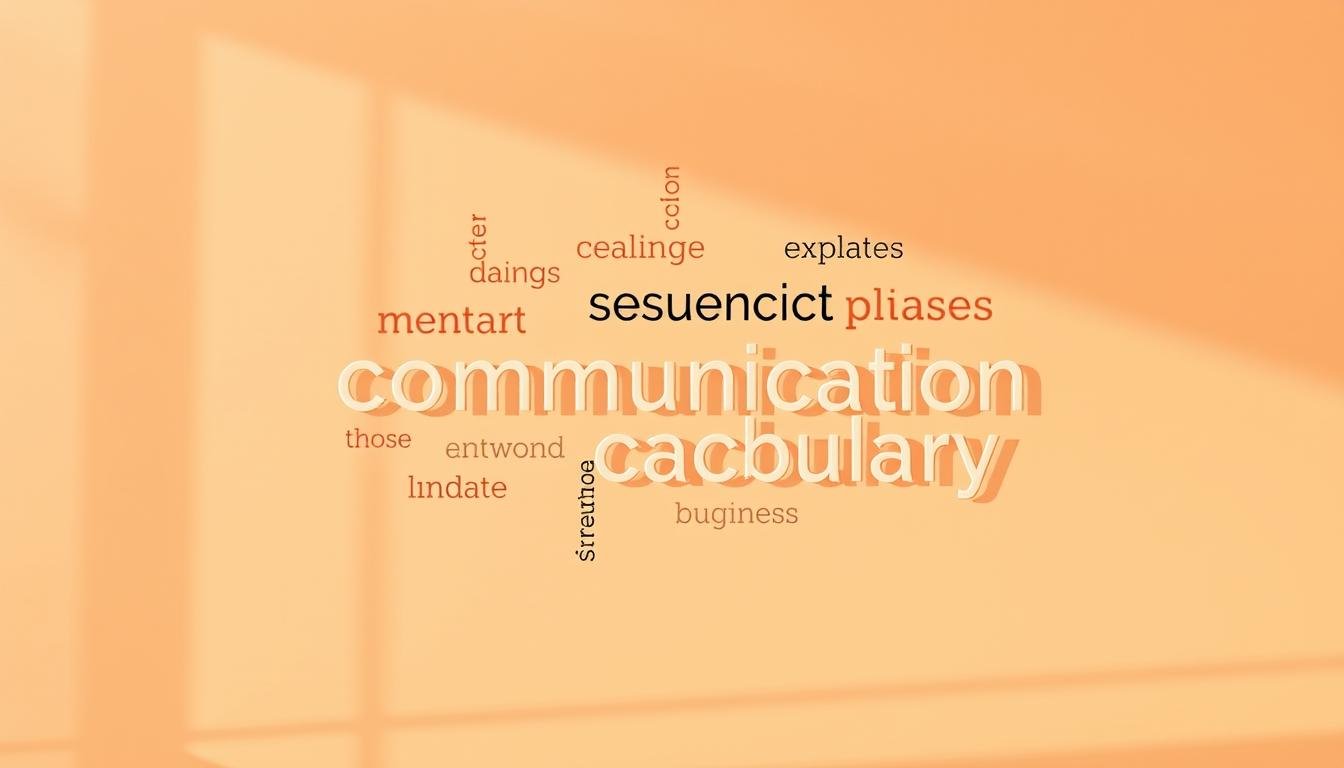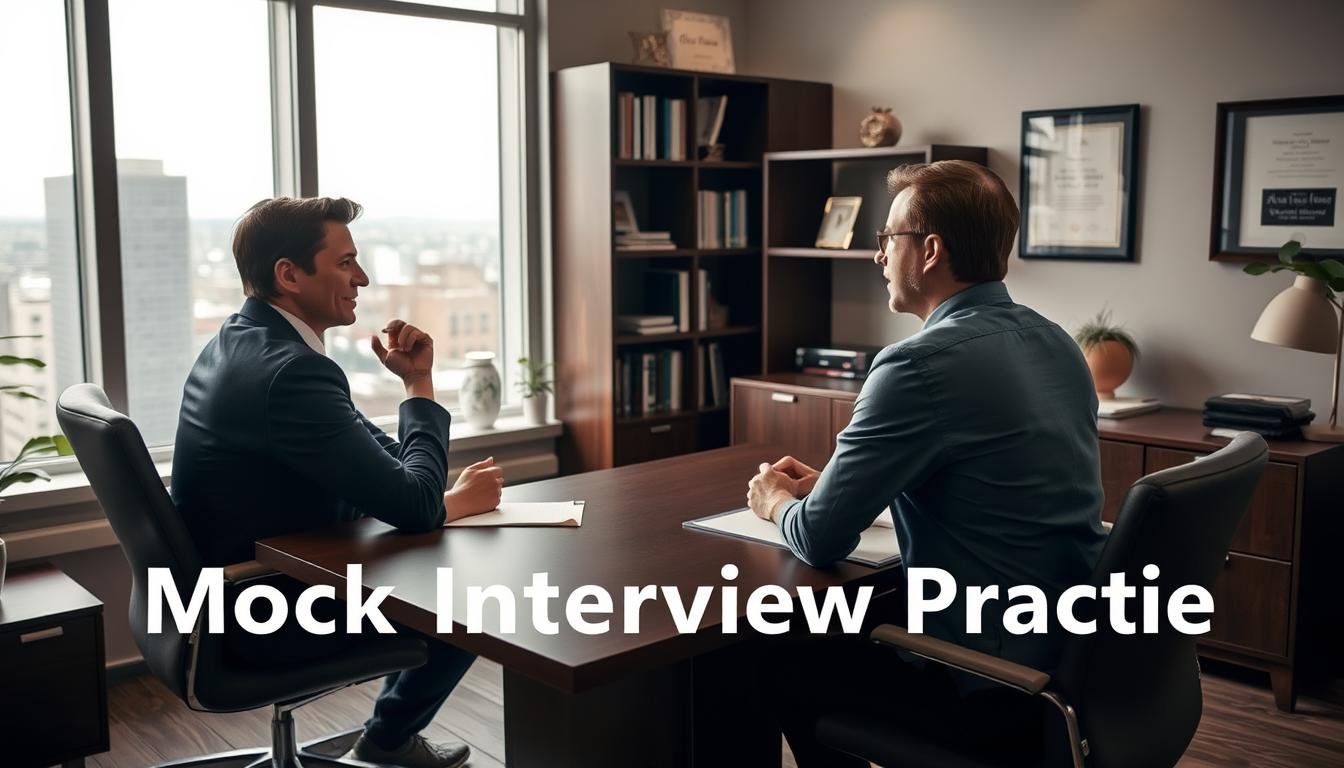Now Reading: The Right Words to End a Conversation: Vocabulary Guide
-
01
The Right Words to End a Conversation: Vocabulary Guide
The Right Words to End a Conversation: Vocabulary Guide

The Right Words to End a Conversation: Vocabulary Guide
Knowing how to end a conversation is as key as starting one. It matters in networking events, social gatherings, or casual chats. Learning when and how to leave a conversation is vital for a good impression.
Many find it hard to awkwardly prolong or abruptly end talks. This can lead to awkward moments. Having the right conversation closing phrases can change everything.

Learning the right vocabulary for ending a conversation helps you feel confident and poised in social situations.
Key Takeaways
- Understand the importance of ending conversations effectively
- Learn conversation closing phrases for different scenarios
- Master the vocabulary to exit conversations naturally
- Improve your ability to navigate various social situations
- Make a lasting impression by ending conversations with confidence
The Art of Graceful Conversation Exits
Knowing how to end a conversation smoothly is key for good social interactions. It helps avoid awkward moments. The way you end a talk can depend on many things like cultural norms and the relationship with the other person.
Why Ending Conversations Can Be Challenging
Ending talks can be hard because we don’t want to upset the other person. Or we want to keep things friendly. Have you ever found it tough to leave a conversation? It’s often because we’re worried about being seen as rude or unsure how to end it nicely.
Some common problems include:
- Unclear conversation goals
- No clear signs to end the talk
- Worrying about upsetting the other person
The Importance of Proper Closing Techniques
Using the right ways to end a conversation is very important. Polite words and phrases help signal the end without upsetting anyone. You can use phrases about time, transition words, and polite endings.
Cultural Considerations in Conversation Endings
Cultural differences affect how we end conversations. What’s polite in one culture might be rude in another. Knowing these differences is key for good communication.
For example, some cultures value directness, while others prefer subtlety. Understanding these can help you avoid cultural faux pas when ending talks.
Understanding Conversation Dynamics
To end a conversation nicely, you need to understand how it flows. It’s about the mix of words and body language that guide the talk. This mix sets the pace and direction of what we say.
Recognizing Natural Conversation Rhythms
Every conversation has its own rhythm. People often follow a pattern of talking and listening without even realizing it. Knowing these rhythms helps you know when it’s time to wrap things up. This way, you can leave smoothly.
Reading Social Cues and Body Language
Social signs and body language are key in conversations. Non-verbal signals like leaning away or looking at watches show someone wants to stop talking. Paying attention to these signs helps you end the chat in a kind and timely way.
The Psychology Behind Conversation Closure
Understanding why we end conversations is important. It’s about knowing how people feel during the talk. Some talks can be draining, while others are uplifting. Knowing this helps you end the conversation right, using the right conversation conclusion vocabulary.
Learning about these parts of conversation helps you end talks well. You’ll know how to use the right verbal cues to indicate the end of a conversation.
Essential Vocabulary for Ending a Conversation
Knowing how to end a conversation nicely is key in both personal and work life. It’s about using the right words, timing, and understanding the situation.
Time-Related Phrases
Time phrases are great for wrapping up a chat. Here are a few:
- “I’m running a bit behind schedule, so I should probably get going.”
- “It’s been great catching up, but I have another appointment soon.”
- “I should let you go, as I know you’re busy.”
Transition Words and Expressions
Transition words and phrases are useful for signaling the end. Here are some:
- “Well, it was great talking to you.”
- “Anyway, I should probably head off.”
- “Moving on, I wanted to touch base with you about…”
Polite Closing Statements
Ending conversations nicely is important. The right words can make a big difference, depending on where you are.
Formal Settings
In formal places, keep it professional. Here are some examples:
| Context | Example Phrase |
|---|---|
| Business Meeting | “Thank you for your time today. I look forward to our next discussion.” |
| Networking Event | “It was great meeting you. I’ll make sure to follow up on our discussion.” |
Casual Encounters
In casual chats, you can be a bit more relaxed. Here are some examples:
- “It was great running into you. Let’s catch up again soon.”
- “I’m glad we had a chance to talk. Take care!”
Deborah Tannen, a famous linguist, said, “Conversation is a ritual, and rituals are comforting because they are predictable.” Using the right words can make ending talks smoother and less awkward.
By using these phrases and tips, you’ll find it easier to end conversations nicely, in both formal and casual situations.
Adverbs and Phrases That Signal Conversation Endings
Knowing how to end a conversation is key. Adverbs and phrases play a big role in showing it’s time to stop talking. They help us wrap up discussions nicely, so everyone can move on.
Using “Naturally” in Conversation Closures
The word “naturally” can make ending a chat feel less harsh. For example, saying “Naturally, we’ll have to catch up again soon” makes the end feel smoother. It keeps the conversation on a friendly note.
Context-Specific Phrases for “In-Person” Interactions
When we meet face-to-face, special phrases can signal the end. Saying “It was great running into you; let’s grab coffee soon” or “I should probably get going, but it was lovely chatting with you” works well. They help close down our in-person talks nicely.
Employing “Scenario” in Conversation Planning
Thinking ahead about how conversations might end is smart. For instance, knowing when a meeting will end lets you prepare a closing phrase. Saying “As we wrap up, I wanted to thank you for your insights” can make the end feel complete.
Using these adverbs and phrases in our daily chats can make us better at ending them. It makes our communication clearer and more thoughtful.
Verbal Communication Techniques
Verbal communication is key in ending conversations. It’s about choosing the right words, tone, and setting to send your message clearly.
The Art of “Bumping Into” Someone
“Bumping into” someone means running into them by chance. It’s a way to start or stop a chat. Saying “It was great bumping into you” is a nice way to wrap up a conversation that wasn’t planned.
How to “Observe” Conversation Patterns
It’s important to notice how conversations flow. Look for transition words or body language that shows it’s time to move on.
Understanding Abbreviations in Modern Communication
In our digital world, we use lots of abbreviations. Knowing these can help you manage chats better. It’s about knowing when to use them and understanding their meaning.
Learning these verbal skills helps you end talks nicely. It makes your interactions more friendly and considerate.
Face-to-Face Conversation Endings
Learning how to end face-to-face conversations is key to better daily interactions. It’s about using words and body language, and knowing when to move. These skills help wrap up talks smoothly.
Non-Verbal Cues That Support Verbal Closings
Non-verbal signs are vital in showing a conversation is ending. Body language like turning away or making a leave gesture is a clear signal. Eye contact is also key; keeping it shows respect, while breaking it can mean it’s time to move on.

Physical Positioning and Movement Strategies
How you stand and move can change a conversation’s direction. Standing up or stepping back can signal the end. Also, angling your body towards the exit hints at your desire to leave.
Handling Unexpected Conversation Extensions
Conversations can sometimes go longer than expected. It’s important to politely interject or excuse yourself then. Saying thanks and acknowledging the other’s time helps wrap things up nicely.
Phone and Virtual Conversation Closures
In today’s world, we talk a lot over phones and online. Ending these chats can be tough because we miss out on body language. It’s key to use the right words to show when we’re done talking.
Audio-Only Communication Challenges
To wrap up a call without seeing each other, pick words that mean it’s time to stop. This makes the end clear and respectful.
Video Call Specific Strategies
On video calls, mix words with body language to signal the end. Using phrases that wrap up the talk smoothly is helpful.
Text-Based Conversation Endings
Ending a text chat is simple with the right words and punctuation. This tells the other person it’s time to stop typing.
Professional Settings: Business Conversation Closures
## Professional Settings: Business Conversation Closures
Effective conversation closure is key in work settings. You can use phrases like “In summary,” “To conclude,” and “Thank you for your time.”
### Networking Event Exit Strategies
For leaving networking events, say “Excuse me,” “Thank you for hosting,” and “It was great meeting you all.” These help you exit smoothly.
### Email and Written Communication Closings
When writing emails, use “Sincerely,” “Best regards,” “Thanks,” and “Take care.” These are both formal and informal.
Using these phrases helps wrap up your talks well. It keeps your tone professional, making your work interactions respectful and positive.
Social Scenarios: Casual Conversation Endings
Knowing how to end conversations is key in social settings. It can be tough, but the right words can help a lot.
Party and Social Gathering Exits
At parties, it’s important to leave conversations smoothly. Say “It was great catching up with you, I’ll let you mingle” or “I need to refill my drink, nice talking to you.” These conversation closing phrases help you end discussions nicely.
Friend and Family Conversation Closures
With friends and family, you can be more relaxed. Try “I should get going, but let’s catch up soon” or “I have to take care of something, nice talking to you.” It’s about being polite and clear.
Dating and Romantic Interaction Conclusions
In dating, ending talks needs care. Say “I’d love to continue this conversation another time” or “It was great talking to you, maybe we can grab coffee soon.” These words leave a good impression. They help in ending discussions nicely, keeping things positive.
Using the right conversation closing phrases makes social situations easier. It ensures you end talks on a good note.
Common Mistakes and How to Avoid Them
Ending a conversation can be tricky. It’s important to avoid awkward or ineffective conclusions. We’ll look at common mistakes and how to steer clear of them.
Abrupt Endings and Their Consequences
Abruptly ending a talk can shock the other person. It might make them feel confused or upset. To avoid this, signal the end with phrases like “Well, it was great talking to you,” or “I should probably get going.”
Overly Prolonged Goodbyes
Long goodbyes can be a problem too. They can make the other person feel trapped. Aim for a balance between politeness and brevity.
Mismatched Formality Levels
Using the wrong level of formality can also mess up a conversation. For example, too formal in an informal setting or too casual in a formal one. This can disrupt the conversation’s flow.
Cultural Faux Pas in Conversation Closings
Cultural differences matter a lot in how we end conversations. What’s polite in one culture might not be in another. Knowing these differences can help you avoid unintentionally offending someone.
By being aware of these common mistakes, you can end conversations more effectively. This ensures a positive and engaging interaction with others.

Conclusion: Mastering the Final Words
Learning how to end conversations well is key for good communication. It’s important in both social and work settings. The right way to wrap up a talk includes using words and body language, knowing the culture, and using strategies that fit the situation.
We’ve looked at why ending talks properly matters. This includes using phrases about time, transition words, and polite ways to say goodbye. These help people leave conversations smoothly, leaving a good impression and avoiding awkward moments.
Knowing how to end conversations is also vital for phone and online chats. It’s important to understand the differences in each way of talking. This way, people can adjust their ending strategies to be respectful and smooth, no matter the setting.
By using the tips and words from this article, people can get better at ending talks confidently. This will make their communication skills stronger overall.
## FAQ
### Q: What are some common phrases used to end a conversation?
Common phrases include “It was great talking to you,” “I should probably get going,” and “I’m going to wrap things up here.”
### Q: How can I politely end a conversation?
To politely end a conversation, say “Excuse me, I have to go,” “I’m so sorry, but I have to leave now,” or “It was nice chatting with you.”
### Q: What are some strategies for ending a conversation in a professional setting?
In a professional setting, use phrases like “I think that’s all for now,” “Let’s wrap up here,” or “I appreciate your time, and I’ll let you get back to work.”
### Q: How can I end a conversation on the phone or during a video call?
When ending a call, say “Thanks for calling/chat,” “I appreciate your time,” or “I’ll talk to you later.”
### Q: What are some tips for ending a conversation in a social setting?
In social settings, use phrases like “It was great catching up,” “I should probably head out now,” or “Let’s catch up again soon.”
### Q: How can I end a conversation in a formal or business setting?
In formal or business settings, consider saying “I believe that’s all,” “Let’s conclude here,” or “Thank you for your time.”
### Q: What are some common mistakes people make when ending a conversation?
Common mistakes include abrupt endings, overly prolonged goodbyes, and mismatched formality levels.
### Q: How can I avoid making mistakes when ending a conversation?
To avoid mistakes, be mindful of your tone, the context, and the other person’s cues. Use phrases that fit the situation.






























